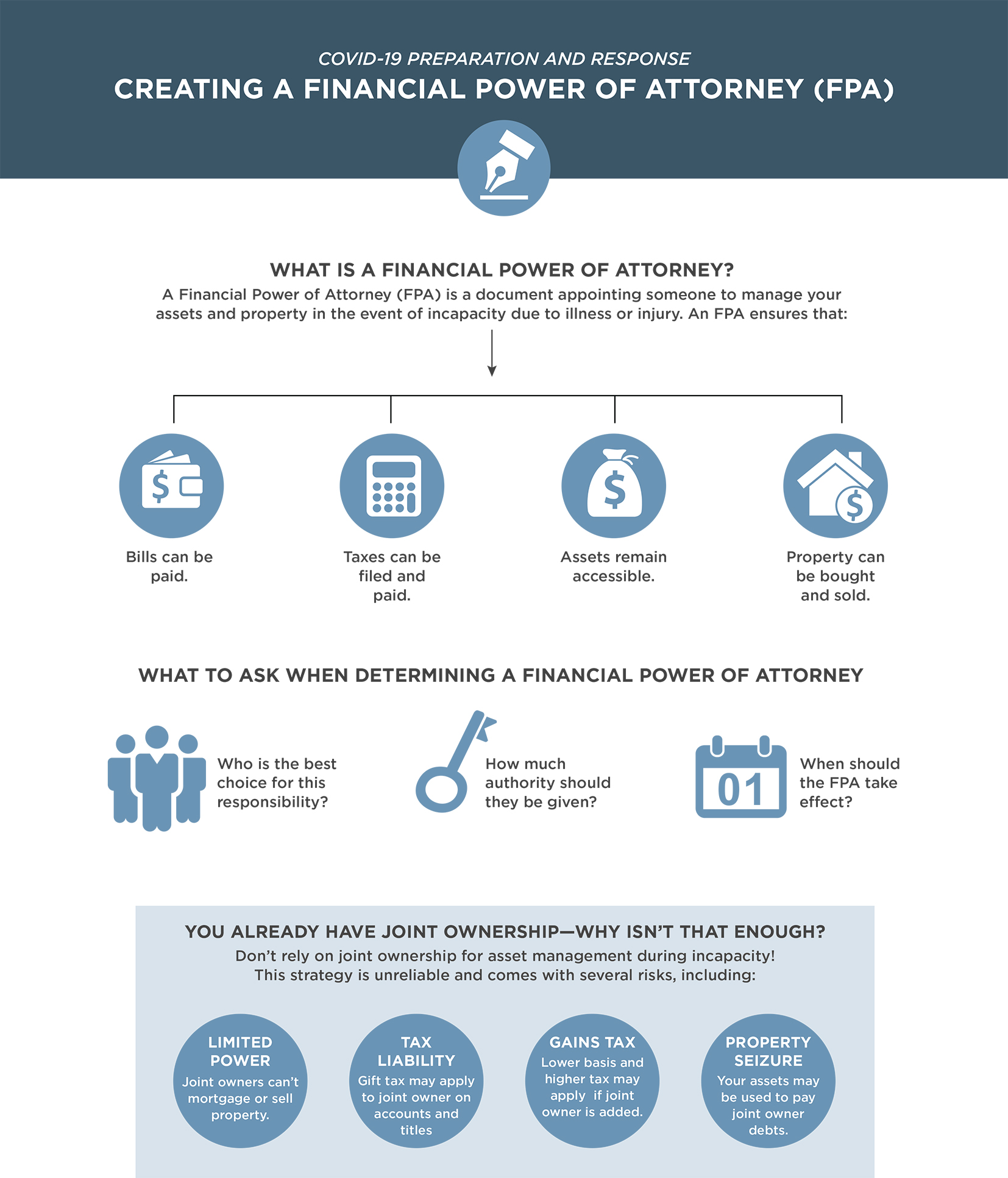Estate planning can be important for a number of reasons. Did you know that the U.S. House of Representatives even designated the third week of October as National Estate Planning Awareness Week? The week is an opportunity to recognize and raise awareness as to the many things that can be accomplished through a strong estate plan. The protections put in place by a comprehensive estate plan seem especially important during the Covid-19 pandemic.
When developing an estate plan, you should consider including:
1. A Durable Power of Attorney: A durable power of attorney is a legal document that gives an agent the authority to carry on your financial and legal affairs and protect your property by acting on your behalf when you are incapacitated. The power of attorney can give the agent the ability to do things like pay bills, write checks, make deposits, sell or purchase assets, and sign tax returns.
2. Health Care Planning Documents: These documents empower you to select a trusted individual who will be given the authority to make health care decisions on your behalf if you are incompetent or incapacitated.
3. A Living Will: A living will allows you to indicate what kinds of end-of-life care you do and do not want when you are in a terminal medical situation. Without this document, your family will be uncertain about what types of care you would want, decisions which are often fraught and stressful.
4. A Will: This is possibly the most common legal document in estate planning. It can be used to direct the distribution of your property at the time of your death. It also allows you to appoint a personal representative to oversee the distribution of your assets. Additionally, it allows you to appoint a guardian to take care of minor children.
5. A Revocable Trust: This is a tool that can be used both for incapacity planning and for your estate after you pass away. This can be a great tool for maintaining privacy, and ensuring that your wishes are followed both during end-of-life and after you pass.
We know you may have questions. Let us help. Please contact us today to discuss the tools you need in your estate plan.



